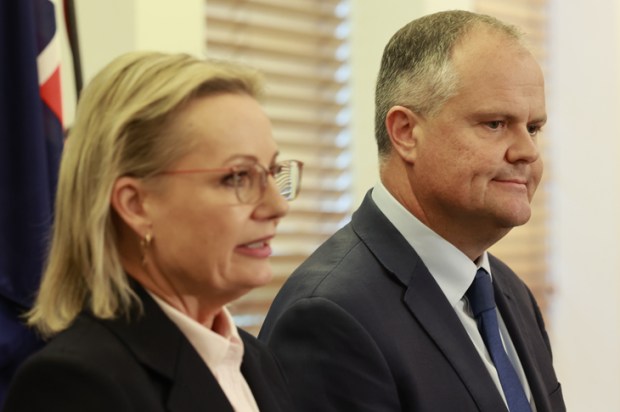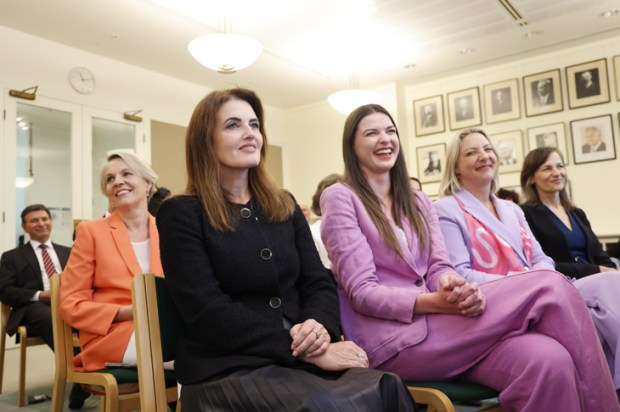I am thrilled about the government’s plan for an economic roundtable to be held in Canberra from 19 to 21 August. Why? Certainly not because it might produce anything original or worthwhile or be more than a complete waste of time and money. No, I am thrilled because it will be another clear demonstration of the uselessness of all such inquiries and summits, thus guaranteeing its failure. And fail it should. The best thing you can say for it is that it will produce a few so-called ‘reforms’ that the self-appointed elites, who will be the only people allowed to attend, think are good for them and therefore by definition are good for everyone else.
Here are some of the more delusional features of the event that should guarantee its failure, and a good thing too. First, there will be a ‘limited’ number of participants, a sort of committee of 25, and of course all of them are the usual suspects who have got us to where we are today. This is a very wise feature of its design. After all, if you have more than a ‘limited’ number of attendees, you run the risk of having a real melting-pot of original ideas and, who knows, you might even attract a few contributions from people who actually work for a living or pay their own way. The danger of having more than a limited number of participants and not controlling who they are and what they are likely to say at the summit is that it would be interrupted by normal people complaining about their gas and electricity bills, their kids not being educated, the dead hand of government that controls our every breath, the cost and bureaucratic burden of nonsense like climate change and the complete lack of any incentive for them to do better. In particular, if you allowed people who actually work in small business to attend, they would complain about government controls and regulation that are stifling the little that is left of self-reliance and initiative, and we would not want that, would we?
Secondly, the government has wisely tackled the problem of how to avoid the roundtable gabfest being cluttered up with troublemakers and stirrers who might worm their way in and ruffle the status quo. This danger has skilfully been avoided by making attendance at the summit by ‘invitation only’, thus keeping out the riff-raff who might be provocative or say something worthwhile, and allowing inside the tent only those whose opinions and self-serving policies are already well known and who have got us into the stultifying mess we are in.
Thirdly, the lucky participants will be allowed in, not only by invitation but, as a double authentication, they must also be ‘leaders’. This is also a good thing, because leaders know how to behave and not be too radical or provocative. So, industry will be represented by its leaders, the four paid office-bearers of the industry pressure groups. After all, you would not want anyone there who actually owns or runs a business and has to deal with the crushing burden of regulation and taxes. And you certainly would not want any attendee who actually works in a job.
Fourthly, I could see from the beginning the danger of allowing the vigorous exchange of ideas that would inevitably occur if a wide cross-section of attendees were allowed, even if they are leaders. But this danger has also been skilfully avoided by decreeing that only leaders from ‘business, unions, civil society, government and other experts’ will be allowed in. Those from business will be the paid elites who run the pressure groups and cartels and who tell us what is good for us. Having four union leaders present is another commendable safety valve in the interests of inactivity. The union presence will preserve the closed shop, compulsory multi-employer bargaining, the monumental increase in union power, the war on independent contractors and fighting off the danger of having a wage system based on the individual firm and wage-earner and what they are worth. Heaven only knows what ‘civil society’ will contribute, presumably that we should have more social welfare handouts for failures who will not support themselves and more social engineering. And I am thrilled that ‘government’ will be represented; the whole circus is designed to expand control and regulation and it is just as well that its high priests will be present. Of course, they already have their riding instructions from the Treasurer that ‘there is a role for government in getting the settings right, getting regulation right…’. So, get ready for more government controls. It was also a great relief to see that the roundtable will include the presence of ‘experts’, the last refuge of failures. This will guarantee that no proposal will be entertained or adopted that is tainted by practicality or common sense. So you can see that attendance has been finely tuned, so much so that there is no danger of normal people hijacking the summit with their eccentric and impracticable ideas on productivity, which is what the whole thing is supposed to be about.
And of course, the venue for the roundtable is Canberra. As the whole project is divorced from the world of reality, it is only fitting that it should be held in that remote and other-worldly outpost. The Treasury itself has let the cat out of the bag by its revelation that it already knows what the problem is: not enough tax is being levied for too many services; either one will have to increase or the other will have to be cut. No prize for guessing which they will go for.
So, it is all set up for failure. There is not a syllable on the agenda about freedom, starting a business, employing people, making a profit, generating incentive or encouraging self-reliance. In fact, if we really wanted to improve productivity, we would not have a roundtable at all. We would not talk about it; we would do it.
Got something to add? Join the discussion and comment below.
You might disagree with half of it, but you’ll enjoy reading all of it. Try your first month for free, then just $2 a week for the remainder of your first year.














